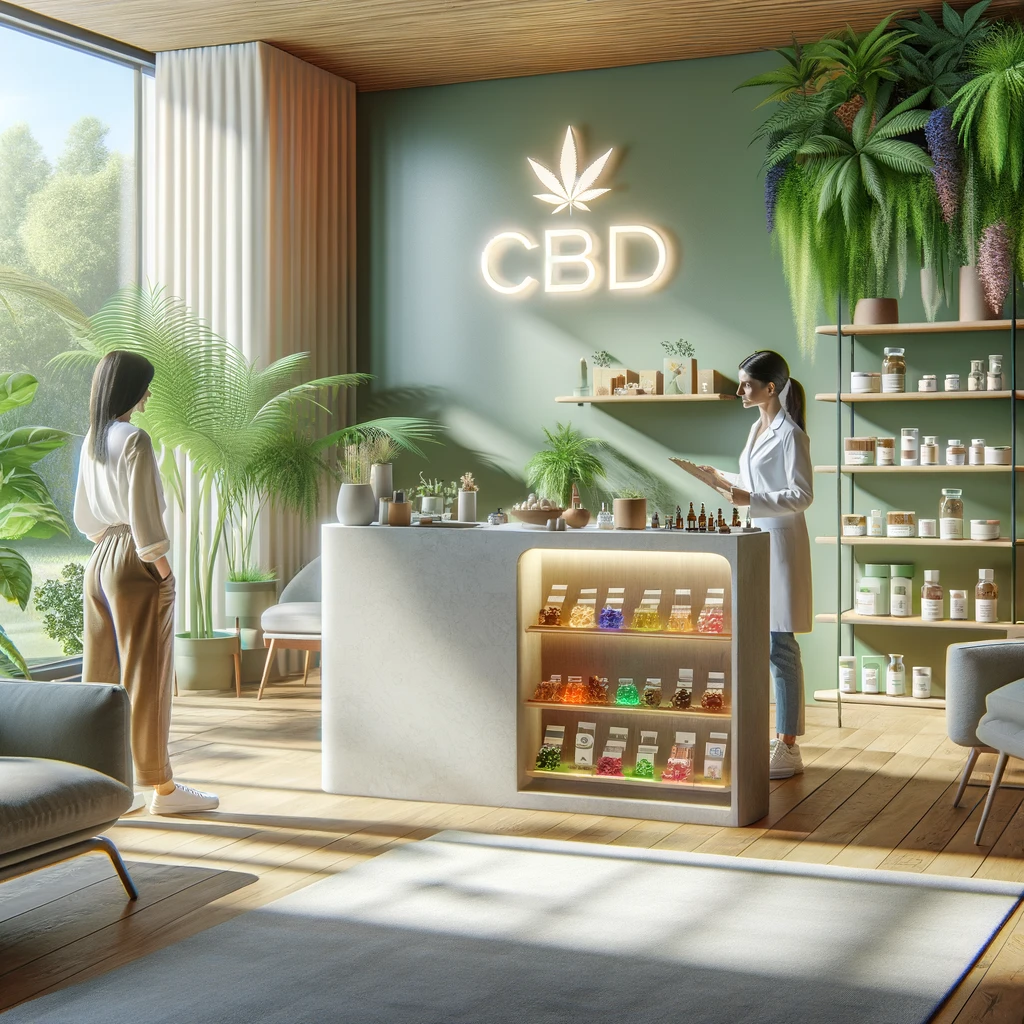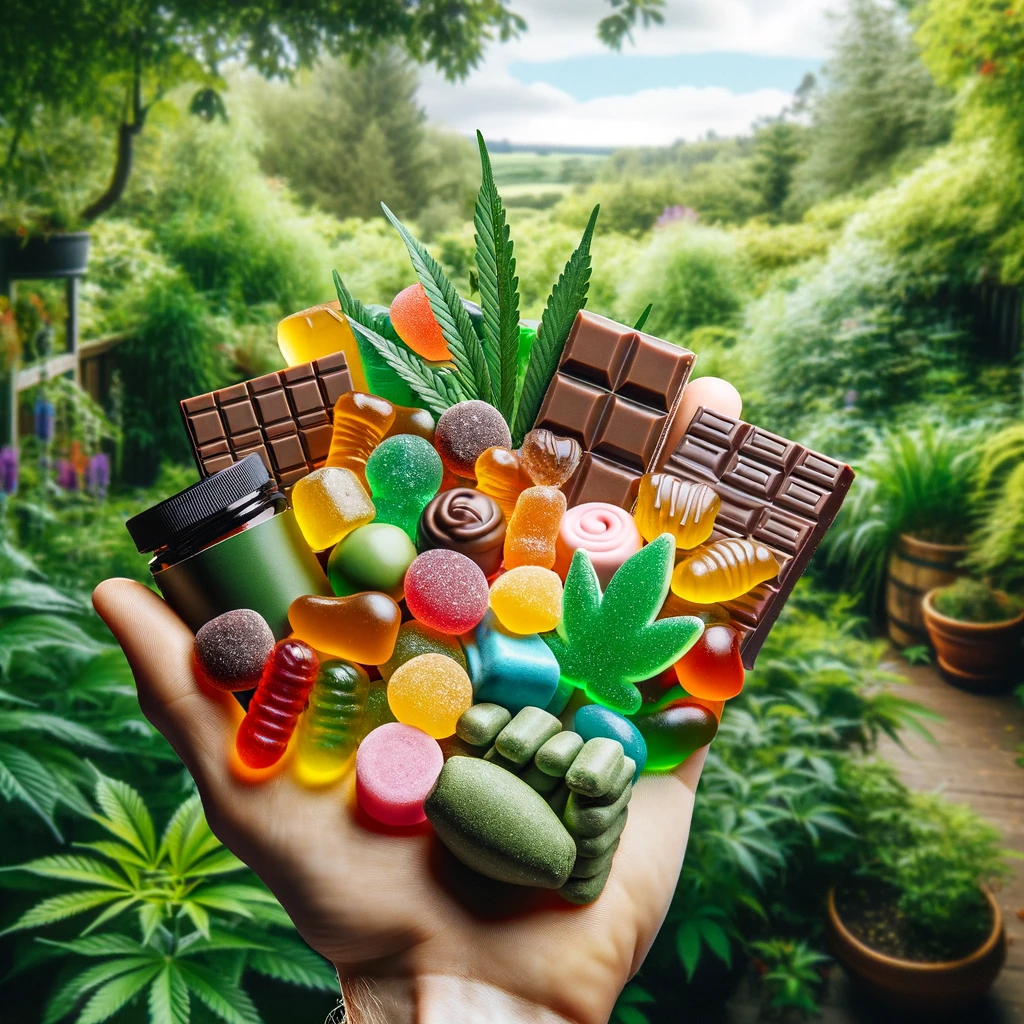If you’re someone who’s interested in wellness trends, you may have noticed that hemp-derived CBD edibles are becoming increasingly popular. These edibles, which are infused with cannabidiol (CBD) derived from the hemp plant, are being touted for their potential health benefits. From reducing anxiety to alleviating pain and inflammation, CBD edibles are being used by many people as a natural alternative to traditional medications.
One reason CBD edibles are gaining popularity is that they’re discreet and easy to use. Unlike smoking or vaping CBD, which can be off-putting to some people, edibles can be consumed without drawing attention.
Additionally, CBD edibles come in a variety of forms, from gummies to chocolate bars to baked goods, making them a convenient option for people who want to incorporate CBD into their daily routine. Plus, with the legalization of hemp-derived CBD at the federal level, these products are becoming more widely available.
Overall, the rise of hemp-derived CBD edibles in the wellness world is a trend worth paying attention to. Whether you’re looking for a natural way to manage pain or just curious about the potential benefits of CBD, these edibles offer a convenient and discreet way to try it out. As always, it’s important to do your own research and consult with a healthcare professional before incorporating any new supplements into your routine.
Understanding CBD and Its Origins
If you’re interested in the wellness world, you’ve likely heard of CBD. But what is it, exactly? CBD, or cannabidiol, is a compound found in the cannabis plant. It’s one of over 100 cannabinoids found in cannabis, but it’s different from THC, the cannabinoid that gets you “high.” CBD is non-psychoactive, meaning it won’t make you feel intoxicated.
Differences Between Hemp and Marijuana
CBD can be obtained from both marijuana and hemp plants. However, there are some key differences between the two. Hemp is a type of cannabis plant that contains very low levels of THC (less than 0.3%). Marijuana, on the other hand, can contain high THC levels (up to 30%). Because of this, hemp-derived CBD is legal in many parts of the world, while marijuana-derived CBD is not.
Extraction and Processing of CBD

To extract CBD from the hemp plant, manufacturers use a variety of methods, including CO2 extraction, ethanol extraction, and oil extraction. Once the CBD has been extracted, it can be processed into a variety of products, including edibles, tinctures, and topicals.
It’s important to note that not all CBD products are equal. It’s important to choose a reputable brand that uses high-quality, third-party tested CBD. Additionally, it’s important to read the label carefully to ensure you’re getting the desired amount of CBD per serving.
Overall, CBD is a fascinating compound that is gaining popularity in the wellness world. With its potential to promote relaxation, reduce anxiety, and alleviate pain, it’s no wonder why hemp-derived CBD edibles are taking the wellness world by storm.
Health Benefits and Research
If you’re looking for a natural way to improve your health and wellness, hemp-derived CBD edibles might be worth considering. CBD, or cannabidiol, is a non-psychoactive compound found in the hemp plant that has been shown to interact with the body’s endocannabinoid system.
The Endocannabinoid System and CBD Interaction
The endocannabinoid system is a complex network of receptors and neurotransmitters that regulates a variety of physiological processes, including mood, sleep, and pain. CBD has been shown to interact with these receptors, potentially leading to a variety of health benefits.
Potential Benefits for Anxiety and Sleep
Research suggests CBD may have potential benefits for anxiety and sleep. In a study published in the Permanente Journal, researchers found that CBD was associated with decreased anxiety in 79.2% of patients and improved sleep in 66.7% of patients.
CBD’s Role in Pain Management
CBD may also play a role in pain management. A review of studies published in the Journal of Experimental Medicine found that CBD significantly reduced chronic inflammation and neuropathic pain in rodents. While more research is needed to determine the effectiveness of CBD for pain management in humans, these findings are promising.
Overall, hemp-derived CBD edibles have the potential to provide a range of health benefits. However, it’s important to note that more research is needed to fully understand the effects of CBD on the body and its potential benefits for various health conditions. As always, it’s best to consult with a healthcare professional before adding any new supplements to your wellness routine.

Legal and Regulatory Landscape
Legality of Hemp-Derived CBD
Hemp-derived CBD products have gained immense popularity in recent years, but their legality is still a subject of confusion for many. The 2018 Farm Bill legalized the cultivation and sale of hemp and hemp-derived products, including CBD, as long as they contain less than 0.3% THC.
However, some states have their own laws and regulations regarding the use and sale of CBD products, so it’s important to check your local laws before purchasing or using any CBD products.
FDA’s Stance on CBD Products
The FDA has not yet approved CBD as a food additive or dietary supplement, and they have issued warning letters to companies making health claims about their CBD products. However, the FDA has approved one CBD-based drug, Epidiolex, to treat seizures associated with two rare forms of epilepsy. The FDA has also stated that they are currently evaluating the regulatory framework for CBD products and plan to provide more guidance in the future.
When it comes to labeling, the FDA requires that CBD products are labeled accurately and truthfully. This means that the label should include the amount of CBD per serving, the total amount of CBD in the product, and any other ingredients or additives. Third-party lab testing is also important for ensuring the quality and transparency of CBD products. Reputable companies will often provide third-party lab results on their website or upon request.
In conclusion, while the legal and regulatory landscape surrounding hemp-derived CBD products can be complex, it’s important to do your research and choose reputable companies that prioritize quality and transparency.
Types of CBD Edibles and Consumer Considerations
As for CBD edibles, there are a variety of options available on the market. From gummies to beverages, consumers can choose from a range of products that suit their preferences.
However, before making a purchase, it is important to consider a few key factors to ensure that you are getting the right product for your needs.
From Gummies to Beverages: A Variety of Choices
CBD edibles come in a variety of forms, including gummies, capsules, cookies, chocolates, tinctures, and beverages. Each type of edible has its own unique benefits and drawbacks, and it is important to consider which one will work best for you.
For example, delta 8 edibles are discreet and easy to consume, while beverages provide a more refreshing and hydrating option.
Full-Spectrum, Broad-Spectrum, and Isolate Explained
Another important consideration when choosing CBD edibles is the type of CBD extract used. CBD can be extracted in three different forms: full-spectrum, broad-spectrum, and isolate. Full-spectrum CBD contains all compounds found in the hemp plant, including THC. Broad-spectrum CBD contains all compounds found in the hemp plant except for THC. Isolate CBD is the purest form of CBD and contains only CBD without any other compounds.
Determining the Right Dosage and Safety
When consuming CBD edibles, it is important to determine the right dosage and ensure that you are consuming the product safely. The recommended serving size and CBD content can vary depending on the product, and it is important to follow the instructions on the packaging. It is also important to be aware of any potential side effects and to start with a low dosage to see how your body reacts to the product.
Additionally, it is important to ensure that a third-party lab has tested the product to ensure its safety and quality.
What You Need to Know
Understanding the nuances of CBD extracts is crucial for making informed choices about edibles. Full-spectrum, broad-spectrum, and isolate represent the three main types of CBD extracts, each with distinct compositions. Full-spectrum CBD encapsulates the entire spectrum of hemp plant compounds, including trace amounts of THC, the psychoactive component. Broad-spectrum CBD, on the other hand, contains all compounds except THC, offering a comprehensive profile without the psychoactive effects. Isolate CBD stands out as the purest form, consisting solely of CBD without any accompanying compounds.
When delving into CBD edibles, dosage and safety considerations take center stage. Precise dosage guidelines, often provided on packaging, aid users in finding the right balance. Variability exists among products, necessitating adherence to recommended serving sizes and CBD concentrations. Initiating with a modest dose is advisable to gauge individual responses and potential side effects.
Ensuring product safety is paramount, emphasizing the significance of third-party lab testing. Rigorous testing guarantees that the CBD edible adheres to quality standards and is free from contaminants. This commitment to safety not only enhances the overall CBD experience but also fosters confidence in consumers seeking a reliable and trustworthy product.
